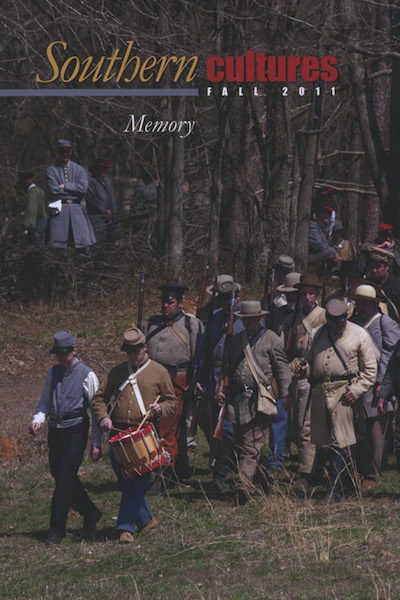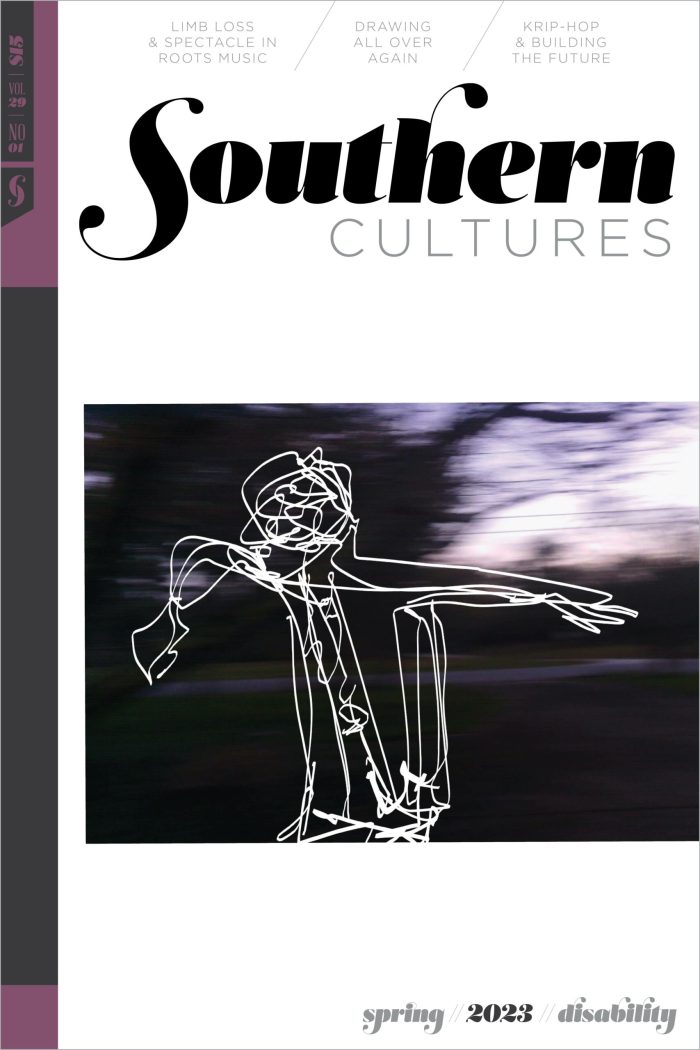BUY ACCESS
by Harry L. Watson
“As the Soviets used to joke about their own politically driven histories, ‘The present we know; the future is certain. Only the past is unpredictable.'” I got a childhood lesson in southern memory when my father asked if I knew what had happened in Reconstruction. I didn’t, of course, but Dad left an indelible (though »
BUY ACCESS
by Peter S. Carmichael
“While northerners might appear comparatively apathetic about the memory of the Union cause, white southerners have been tenacious in searching for moral clarity in the past.” Jefferson Davis sent Robert E. Lee an unusual note after the battle of Gettysburg. The dispatch did not contain any presidential recommendations or requests, only a clipped article from »
BUY ACCESS
by Godfrey Cheshire
“We have two imaginary kingdoms. One, ‘the South,’ exists primarily in song, oral traditions and folkways, native art and literature. The other, ‘Hollywood,’ creates mass-produced audiovisual entertainments for American and world audiences, and develops its own mythology.” If you’re ever inclined to doubt the importance of the South to American movies—or vice versa—consider that David »
by Danny Fulks
“Cooney Simms, the grocer, had a big Philco floor-model radio with push buttons and short wave. Neighbors gathered around when Joe Lewis was fighting. And wasn’t he always, this good giant who whipped Adolph Hitler’s man Max Schmeling? Static wasn’t too bad; one could hear Franklin Roosevelt’s fireside chats if they didn’t come on the »
Interview
Helen Matthews Lewis, Appalachian Studies, and the Long Women’s Movement
by David P. Cline,
Jessica Wilkerson
A 1966 photograph of the Appalachian historian and activist Helen Matthews Lewis captures much about a woman who has been studying, writing about, and fighting for the people of Appalachia for three-quarters of a century. In the photo, Lewis sits outside of a mine entrance, hair emerging beneath a hard hat, with a big smile »
BUY ACCESS
by Sally Greene
“Ruffin was ideologically sympathetic to the Confederate cause and remained so to his death. ‘The power of the master must be absolute,’ Ruffin wrote in State v. Mann (1829), ‘to render the submission of the slave perfect.’ State v. Mann became the most notorious opinion in the entire body of slavery law.” A visitor to »
BUY ACCESS
by Keith Maillard
“‘Well, of course I remember Pearl Harbor,’ my mother says, the tone of her voice adding, What do you think I am, an idiot? She and my grandmother were working in the shop when they heard on the radio that the Japanese had bombed Pearl Harbor. She was five months pregnant with me. It was »
BUY ACCESS
by Josh Eure
“Jimmy ‘Catfish’ Hunter pitched for the Oakland Athletics and the New York Yankees and in 1987 was inducted into the Baseball Hall of Fame – all the while maintaining his small-town farming roots. He played every game with the shotgun pellets from a childhood hunting accident lodged in his foot, and natives imagined he held »
BUY ACCESS
by Robert Morgan
“. . . for ten millennia, the bones seemed wreckage from a mighty dream . . .” Big Bone LickAt Big Bone Lick the first explorersfound skeletons of elephants they said,found ribs of wooly mammoths, tusks.They dug out teeth the size of bricksand skulls of giant bison, beavers.





